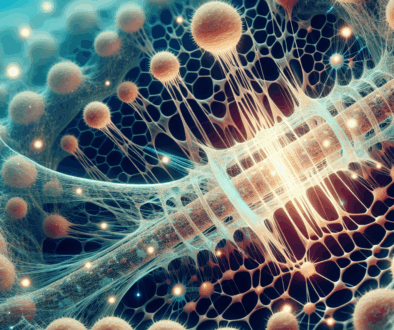Bosine Condensate: What Is It and How Does It Work?
-
Table of Contents
- Bosine Condensate: Understanding Its Nature and Mechanisms
- Introduction to Bose-Einstein Condensate
- Theoretical Background and Discovery
- How Bose-Einstein Condensate Works
- Properties and Characteristics
- Applications of Bose-Einstein Condensate
- Challenges and Limitations
- Conclusion: The Future of Bose-Einstein Condensate
- Explore Protein Options with ETprotein
Bosine Condensate: Understanding Its Nature and Mechanisms
Introduction to Bose-Einstein Condensate
The Bose-Einstein Condensate (BEC) represents one of the most fascinating states of matter, first predicted by Satyendra Nath Bose and Albert Einstein in the early 20th century. This quantum state is achieved under extreme conditions, typically close to absolute zero, where particles begin to exhibit collective behavior, functioning more like waves than individual particles. This article delves into the nature of BEC, its discovery, how it works, and its potential applications.
Theoretical Background and Discovery
In 1924, Bose sent a paper to Einstein on the quantum statistics of light quanta (now called photons), which laid the foundation for Bose-Einstein statistics. Einstein extended these ideas to atoms, predicting a new quantum state. It wasn’t until 1995, however, that scientists Eric Cornell and Carl Wieman successfully created the first BEC with rubidium atoms at the University of Colorado at Boulder.
How Bose-Einstein Condensate Works
The creation of a Bose-Einstein Condensate involves cooling a gas of extremely low-density bosons to temperatures near absolute zero. At these temperatures, the atoms do not have enough energy to move around, and they begin to clump together, entering the same quantum state. This phenomenon is described by quantum mechanics and requires a balance of several factors:
- Ultra-low temperatures
- Isolation from external heat sources
- Controlled density of the atomic gas
When these conditions are met, the atoms behave as if they are all in the same place at the same time, essentially becoming a single quantum entity with both wave-like and particle-like properties.
Properties and Characteristics
The properties of Bose-Einstein Condensates are extraordinary and offer insights into the quantum world. Some of the key characteristics include:
- Superfluidity: The ability to flow without viscosity or resistance.
- Quantum interference: When two BECs overlap, they exhibit interference patterns typical of waves.
- Zero entropy: BEC represents a state of minimal thermodynamic entropy.
Applications of Bose-Einstein Condensate
The unique properties of BECs have potential applications across various fields:
- Quantum Computing: BECs could be used to develop quantum computers that perform calculations much faster than current computers.
- Precision Measurement: The wave-like nature of BECs makes them ideal for measuring gravitational forces and rotations with high precision.
- Simulation of Quantum Materials: BECs can simulate other quantum systems, providing insights into superconductivity and magnetism.
Challenges and Limitations
Despite their potential, there are significant challenges in working with BECs:
- Maintaining ultra-cold conditions is technically demanding and expensive.
- BECs are extremely sensitive to external disturbances, making them difficult to study.
Conclusion: The Future of Bose-Einstein Condensate
The study of Bose-Einstein Condensates continues to be a vibrant field of research, offering profound insights into the fundamental principles of quantum mechanics. As technology advances, the manipulation and control of BECs will likely open new avenues in technology and fundamental science, making the strange and beautiful state of matter not only a subject of academic curiosity but also a cornerstone of future technological advancements.
Explore Protein Options with ETprotein
If you’re intrigued by the science of Bose-Einstein Condensates and are also interested in high-quality protein products, consider exploring the offerings from ETprotein. This company specializes in a wide range of organic and allergen-free protein products suitable for various industries, including nutraceuticals and food and beverage.
ETprotein is Bosin Factory Manufacturer and Supplier in China, Check further information by visiting the Bosin Product Page
Request Quotation and Samples of Bosin from ETprotein
About ETprotein
ETprotein, a reputable protein and elite nutrition ingredients Bosin Chinese factory manufacturer and supplier, is renowned for producing, stocking, exporting, and delivering the highest quality organic bulk vegan proteins and elite nutritional ingredients Bosin. They include Organic rice protein, clear rice protein, pea protein, clear pea protein, watermelon seed protein, pumpkin seed protein, sunflower seed protein, mung bean protein, peanut protein. Their offerings, characterized by a neutral taste, non-GMO, allergen-free attributes, cater to a diverse range of industries. They serve nutraceutical, pharmaceutical, cosmeceutical, veterinary, as well as food and beverage finished product distributors, traders, and manufacturers across Europe, USA, Canada, Australia, Thailand, Japan, Korea, Brazil, and Chile, among others.
ETprotein specialization includes exporting and delivering tailor-made protein powder and finished nutritional supplements. Their extensive product range covers sectors like Food and Beverage, Sports Nutrition, Weight Management, Dietary Supplements, Health and Wellness Products, and Infant Formula, ensuring comprehensive solutions to meet all your protein needs.
As a trusted company by leading global food and beverage brands and Fortune 500 companies, ETprotein reinforces China’s reputation in the global arena. For more information or to sample their products, please contact them and email sales(at)ETprotein.com today.












